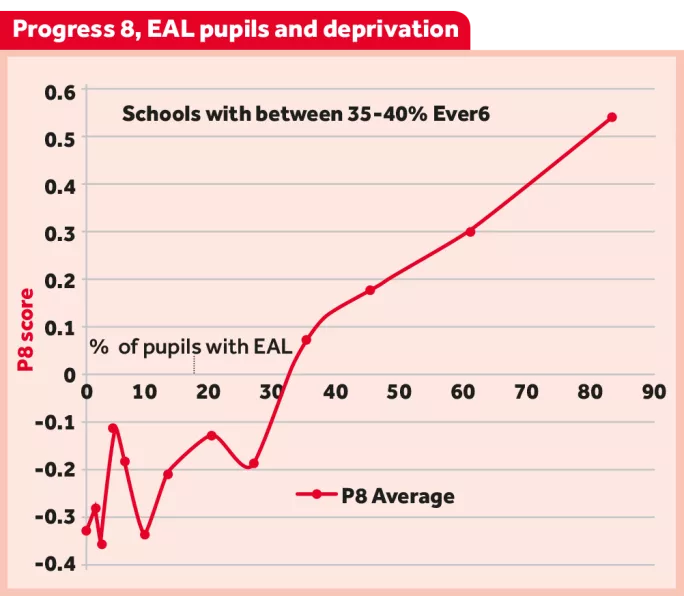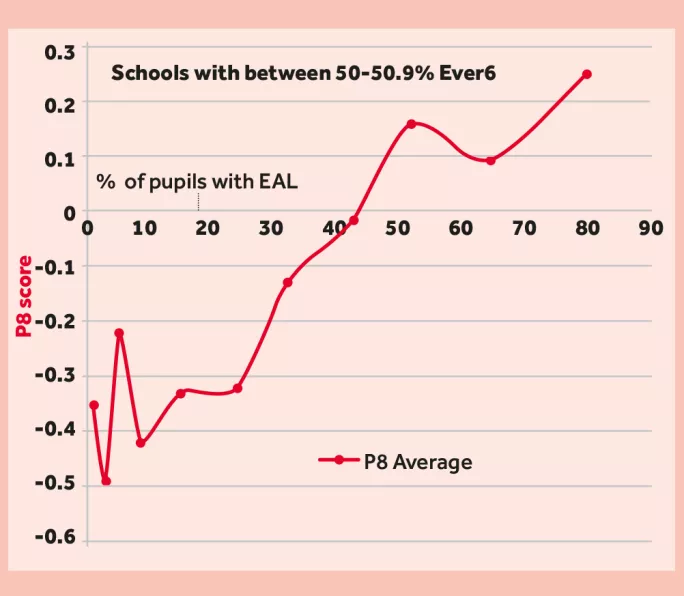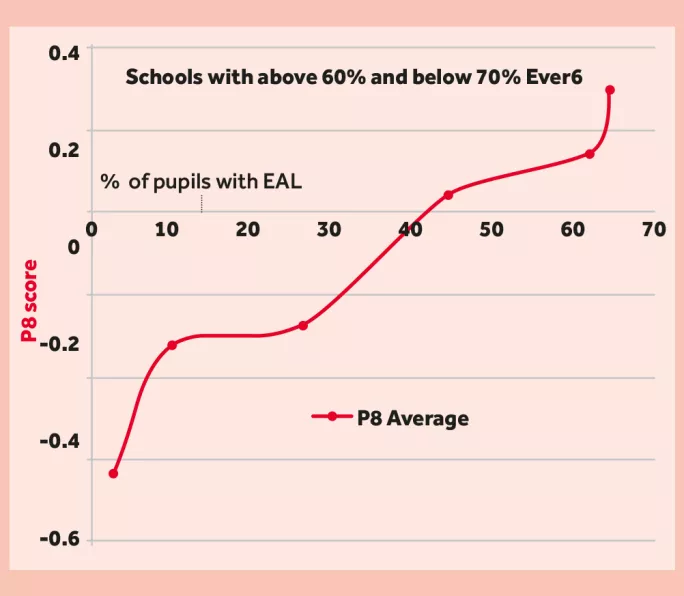Progress 8 penalises schools in disadvantaged areas where there are few pupils who speak English as an additional language, a study by headteachers in the north west of England suggests.
The heads are warning that loading the accountability system against schools in white working-class communities acts as a “huge disincentive” to teach in these areas, and could create “wastelands” of schools which are deemed to be failing.
They also claim it could damage social cohesion by making such communities feel more isolated.
Ian Butterfield, a former research scientist who is now headteacher of Hindley High School in Wigan, conducted an analysis of how Progress 8 scores are affected by a school’s level of deprivation and the size of their EAL cohort.
“I was convinced that there was a problem around Progress 8 not being a true progress measure, but more a reflection of the population,” he told Tes.
He took schools with a similar level of deprivation (as measured by the proportion of pupils who were “Ever 6” - those eligible for free school meals during the preceding six years).
He then analysed how the percentage of EAL children affected the school’s Progress 8 score. To do this, he grouped schools into batches based on the size of their EAL cohort, and then calculated the average Progress 8 score for the batch.
The graphs show that as the proportion of EAL pupils increases, so too does the average Progress 8 score.
“Progress 8 is primarily a product of pupil deprivation in your school and the EAL population within your school,” Mr Butterfield said. “It’s stark, actually. It’s so clear.”
He said that if a school had 70 per cent or more pupils with EAL, it’s “almost impossible to fail” on Progress 8, while if a school has a high degree of deprivation and less than 5 per cent of its students are EAL, then if it performs in line with similar schools, it’s “going to be a coasting school”.
The Education Policy Institute has suggested that schools with large EAL cohorts may perform better under Progress 8, because the key stage 2 test - used as the baseline for the measure - will underestimate some EAL pupils’ academic attainment because students take it before they have reached fluency in English.
Mr Butterfield said loading the accountability system against schools in white working-class areas was “causing people to quit their career and quit teaching”.
James Eldon, the principal of Manchester Enterprise Academy - a school in Wythenshawe that has a high degree of deprivation and where 90 per cent of pupils are white British - said the measure created a “huge disincentive” for school leaders and multi-academy trusts to lead schools in such areas.
He said it “could create wastelands of schools that Ofsted will come in and clatter” and damage social cohesion.
“Whether they are coastal, rural, or urban offshoots, there is an isolationism by definition to many of these populations,” he said. “If you’re then going to have a measure that says ‘and actually you’re not just isolated, you’re not very good compared with other types of school’, you’re compounding that.”
A spokeswoman for Ofsted said: “Inspectors do take into account school performance data but this is only the starting point in the inspection process - it should inform, but not determine, inspection outcomes.”
And a spokeswoman for the Department for Education said: “Far from being unfair, our Progress 8 measure means that schools are now recognised for the progress made by all pupils, as every grade from every pupil contributes to the school’s performance - taking into account their ability when they started school.”
This is an edited article from the 13 April edition of Tes. Subscribers can read the full article here. This week’s Tes magazine is available in all good newsagents. To download the digital edition, Android users can click here and iOS users can click here







